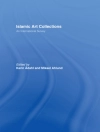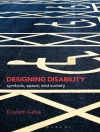Why is Cleopatra, a descendent of Alexander the Great, a Ptolemy from a Greek–Macedonian family, in popular imagination an Oriental woman? True, she assumed some aspects of pharaonic imagery in order to rule Egypt, but her Orientalism mostly derives from ancient (Roman) and modern stereotypes: both the Orient and the idea of a woman in power are signs, in the Western tradition, of “otherness“ – and in this sense they can easily overlap and interchange.
This volume investigates how ancient women, and particularly powerful women, such as queens and empresses, have been re-imagined in Western (and not only Western) arts; highlights how this re-imagination and re-visualization is, more often than not, the product of Orientalist stereotypes – even when dealing with women who had nothing to do with Eastern regions; and compares these images with examples of Eastern gaze on the same women. Through the chapters in this volume, readers will discover the similarities and differences in the ways in which women in power were and still are described and decried by their opponents
.
Dr Filippo (Potsdam University, Germany) Carla-Uhink & Anja (Independent Scholar, Germany) Wieber
Orientalism and the Reception of Powerful Women from the Ancient World [PDF ebook]
Orientalism and the Reception of Powerful Women from the Ancient World [PDF ebook]
Dieses Ebook kaufen – und ein weitere GRATIS erhalten!
Format PDF ● Seiten 336 ● ISBN 9781350050112 ● Herausgeber Dr Filippo (Potsdam University, Germany) Carla-Uhink & Anja (Independent Scholar, Germany) Wieber ● Verlag Bloomsbury Publishing ● Erscheinungsjahr 2020 ● herunterladbar 3 mal ● Währung EUR ● ID 7294440 ● Kopierschutz Adobe DRM
erfordert DRM-fähige Lesetechnologie












